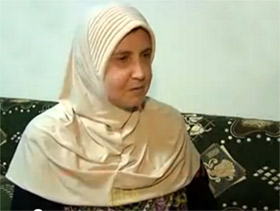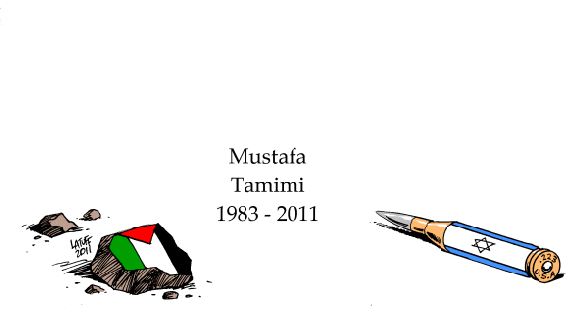Category: Journals
-
Nedal, 14 years old, collected metal to support his family – they shot him from behind
by Rosa Schiano 13 December 2011 | il blog di Oliva This morning at the Eretz border in Beit Hanoun, Israeli soldiers shot a 14-year-old boy, Nedal Khaleel Hamdan. We went to the hospital to meet him. We found him sitting on the bed with his left shoulder bandaged, surrounded by his family. Nedal was collecting…
-
Palestine mourns another real legend, a symbol of motherhood
by Shahd Abusalama 11 December 2011 | Palestine from My Eyes My voice is muted but every feature of my face speaks sorrow and anger. There is no need to wonder why. It’s Palestine, the rich land where smiles can turn to tears and laughs can turn to sighs in a second. It’s Palestine, where…
-
I was Mustafa Tamimi
by Refaat Alareer 12 December 2011 | In Gaza, My Gaza! Fifteen years ago I was Mustafa Tamimi. Two months before that it was a relative who had his skull smashed by an explosive bullet from an Israeli sniper. Later that same week another neighbor lost his eye. Before and since then, the same situation…



